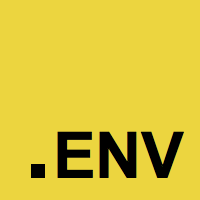The last modifications of this post were around 2 years ago, some information may be outdated!
👉 We use dotenv.
👉 For VSCode, use DotENV extension.
Setting up
For a simple nodejs project,
npm init -y
npm i dotenv
# Create .env in this project
# MAKE SURE IGNORE IT IN GIT !!!Usage in a Node.js
// At the top of the app
require('dotenv').config()
// Use
const db = require('db')
db.connect({
host: process.env.DB_HOST,
username: process.env.DB_USER,
password: process.env.DB_PASS
})Use with js file
Use with a simple .js file? Using command line!
node -r dotenv/config your_script.js
# Custom path
node -r dotenv/config your_script.js dotenv_config_path=/custom/path/to/.env
# Single variable
DOTENV_CONFIG_<OPTION>=value node -r dotenv/config your_script.jsUse it in Github?
# In Github Action
https://github.com/dinhanhthi/<your-repo>/settings/secrets/actions
# In Github Codespaces
https://github.com/dinhanhthi/<your-repo>/settings/secrets/codespaces
# In Dependabot
https://github.com/dinhanhthi/<your-repo>/settings/secrets/dependabotAn example of using Github Action (key SECRET_TOKEN is already defined in /settings/...),
# Use a GitHub Actions secret variable in a bash shell
- name: Step 2 - GitHub Action if statement (true)
env:
WHO_TO_TRUST: $
if: env.WHO_TO_TRUST == 'TrustNo1'
run: echo "I know what the secret token is!"
💬 Comments